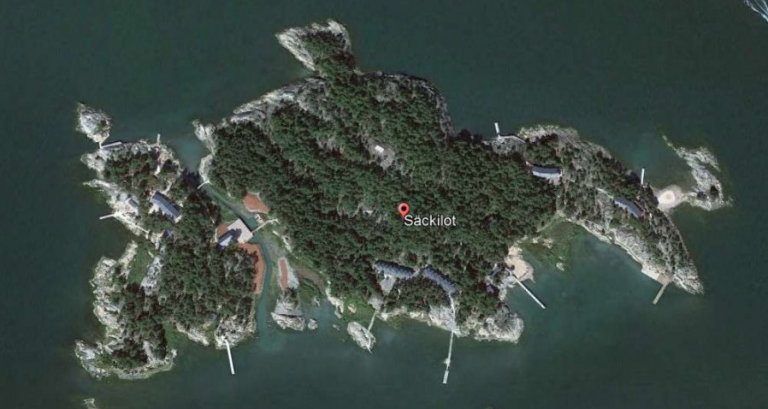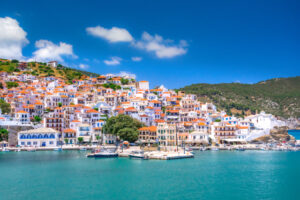Retired to a tiny island in an archipelago between Finland and Sweden, Leo Gastgivar awoke early one morning to visit the outhouse in his bathrobe, only to notice two black speedboats packed with Finnish commandos in camouflage fatigues waiting in the bay near his front door.
After an exchange of awkward greetings, Mr Gastgivar went inside, collected a pair of binoculars and watched aghast as the commandos raced off towards the island of his nearest neighbour, a mysterious Russian businessman he had never met or even seen.
“I thought: ‘Wow! That is certainly unusual’,” Mr Gastgivar recalled of the encounter. “Nobody ever visits that place.”
The island, Sakkiluoto, belongs to Pavel Melnikov, a 54-year-old Russian from St Petersburg, who has dotted the property with security cameras, motion detectors and no-trespassing signs emblazoned with the picture of a fearsome looking guard in a black balaclava.
The island also has nine piers, a helipad, a swimming pool draped in camouflage netting and enough housing – all of it equipped with satellite dishes – to accommodate a small army.
The whole thing is so strange that the raid on 22 September, one of 17 in the same area on the same day, has stirred fevered speculation in Finland that the island’s real owner could be the Russian military.
Finnish officials have attributed the raid to a crackdown on money laundering and cheating on tax and pension payments.
But few are convinced. More than 400 Finnish police officers and military personnel swooped down on Sakkiluoto and 16 other properties in western Finland linked to Russia. Helicopters and a surveillance plane provided support. The air space over the region was closed to all craft not involved in the security operation.
When Russia’s prime minister, Dmitry Medvedev, visited Helsinki, Finland’s capital, a few days after the raid, he scoffed when asked at a news conference if Russia had been preparing landing zones for military helicopters on Finnish islands.
“I don’t know in whose sick mind such a thought could be formulated,” Mr Medvedev said. “Such thinking is paranoid.”
Yet the problem for Russia, and now also for Finland, is credibility. Moscow has denied so many strange and sinister things that have turned out to be true, or at least far more plausible than the Kremlin’s often risible counter stories, that even the most seemingly far-fetched speculation about Russian mischief tends to acquire traction.
One former member of the Finnish parliament, who once served as a border guard officer, has claimed without evidence that Russia had plans to build docks to service its submarines. One theory popular on social media is that the raided islands, which lie near Finnish military installations and important Baltic Sea shipping lanes, were part of an undercover operation by Russia’s military intelligence service, the GU, formerly known as the GRU.
Mr Gastgivar, for one, has long thought something curious was going on at his Russian neighbour’s island.
Read more HERE
Ask me anything
Explore related questions





